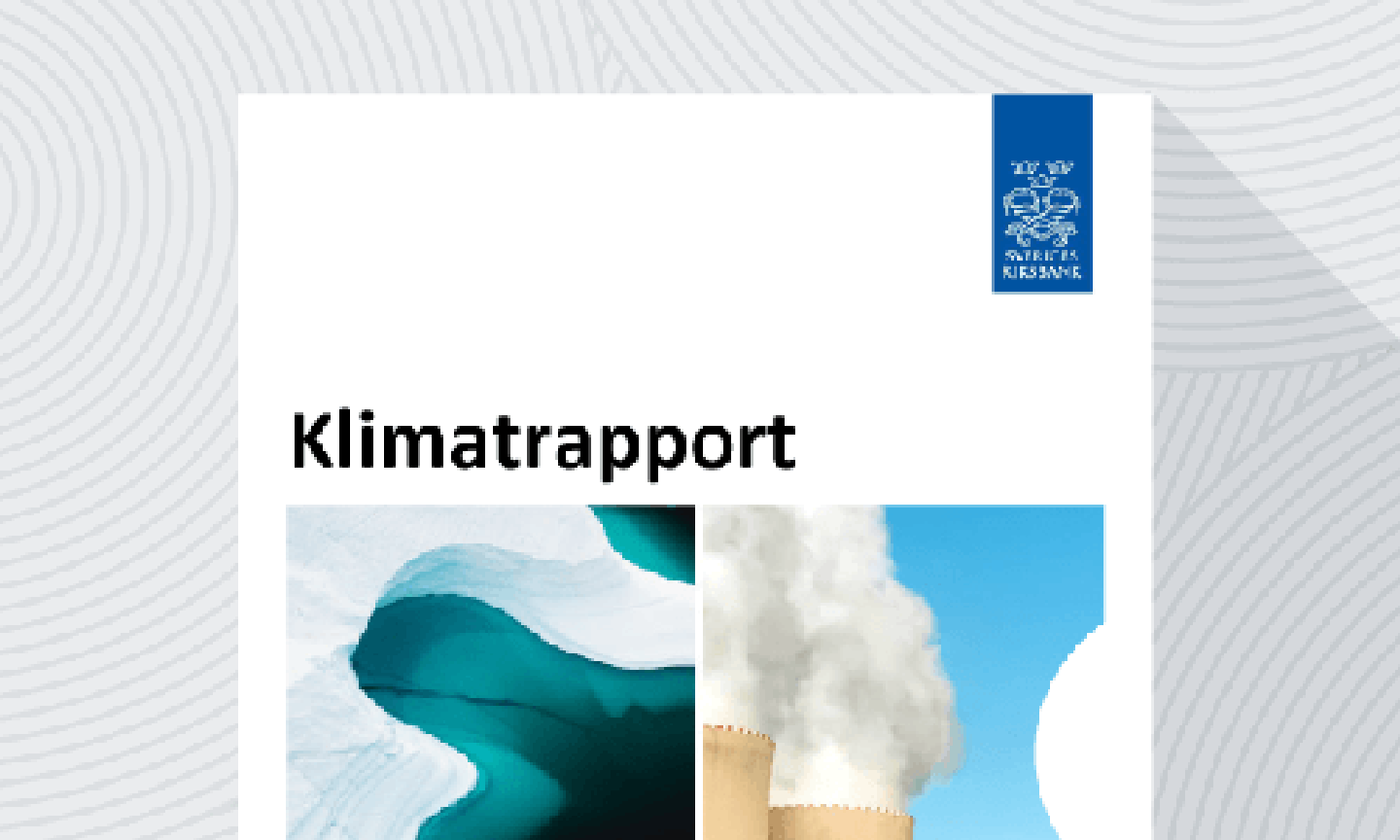The Riksbank’s work on sustainability
The Riksbank's sustainability work is based on the core tasks aimed at supporting long-term sustainable and stable economic development in Sweden.
Focus areas for sustainability work
How the Riksbank worksClimate Report
Climate Report 2025Monetary policy and sustainability
How the Riksbank worksClimate change and stability risks
How the Riksbank worksPayments and sustainability
How the Riksbank worksAsset management and sustainability
How the Riksbank worksSustainability in internal work
How the Riksbank worksPublished on sustainability
News and reportsThanks for your feedback!
Your comment could not be sent, please try again later
Updated 25/02/2025









Questions? Visit our FAQ on kundo.se (opens i new window).